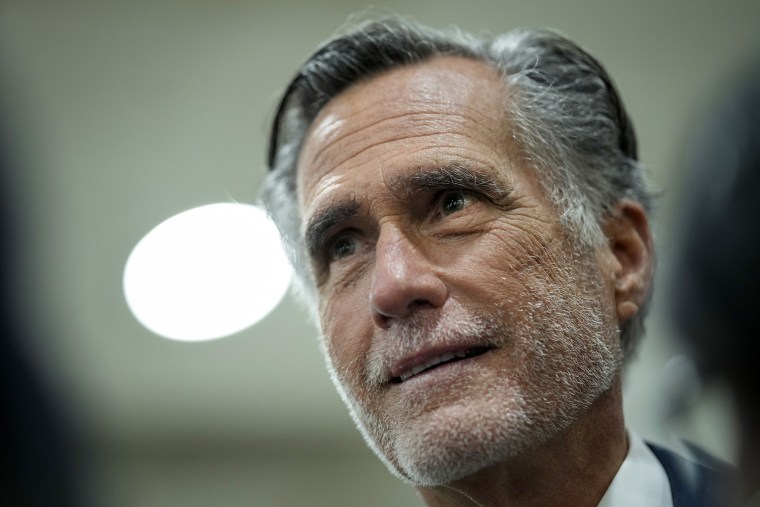It’s been difficult to keep up with Donald Trump’s failures and setbacks of late. The former president dined with some of the nation’s most notorious antisemitic voices. He called for “terminating” constitutional rules in pursuit of bonkers election conspiracy theories. His prized family business was convicted of several felonies. His handpicked Republican candidate in one of the nation’s most closely watched Senate races lost.
Some prominent GOP voices, with varying degrees of subtlety, have even begun carefully suggesting that they might prefer it if Trump weren’t the party’s presidential nominee in the next cycle. Senate Minority Whip John Thune said this week, for example, that he hopes that Republicans will have “other options” in 2024.
Yesterday, as HuffPost noted, another GOP senator went considerably further.
When Sen. Mitt Romney (R-Utah) was asked Thursday if he would support Donald Trump in 2024, the lawmaker didn’t miss a beat: “Absolutely not.” And that stands even if the former president wins the Republican nomination.
At a Washington Post forum, the Utah Republican noted that he voted to convict Trump in both of the former president’s impeachment trials, before explaining his broader perspective.
“It’s not just because he loses,” Romney said, highlighting recent election results. “It’s also [that] he’s simply not a person who ought to have the reins of the government of the United States.”
What’s striking about the comments is just how few GOP voices have been willing to say what Romney said.
Take Senate Minority Leader Mitch McConnell, for example. In the immediate aftermath of Trump’s second impeachment trial, McConnell delivered memorable floor remarks, condemning Trump’s “disgraceful dereliction of duty” on Jan. 6. The Kentuckian added, “There is no question — none — that President Trump is practically and morally responsible for provoking the events of that day. No question about it.”
In the same speech, McConnell called out Trump for his “crescendo of false statements, conspiracy theories, and reckless hyperbole ... orchestrated by an outgoing president who seemed determined to either overturn the voters’ decision or else torch our institutions on the way out.”
The senator went on to raise the prospect of Trump facing civil and/or criminal penalties for his obvious misconduct.
Two weeks later, McConnell appeared on Fox News and was asked whether he’d support Trump’s 2024 candidacy, if the former president again ran as the Republican nominee.
“Absolutely,” McConnell replied.
In the months that followed, he repeated the sentiment, over and over again. The Senate minority leader has suggested Trump shouldn’t be the Republican nominee, and has even predicted that Trump would struggle to win the party’s 2024 nomination, but McConnell hasn’t been able to bring himself to say that he’d withhold support from Trump if he’s the Republican presidential nominee.
Indeed, it’s the caveat in every report about GOP criticisms of Trump: Many in the party have been increasingly willing to criticize the former president’s more obvious outrages, but when pressed on whether they’d balk at his candidacy if he’s the Republican nominee, they demur.
Romney did not.
So, who’s next? Will any other GOP officials who’ll be in office next year echo the Utah senator’s declaration? Sometimes, politicians want to take a provocative position, but they’re afraid to go first. Romney took the leap, perhaps others will have the courage to follow him?

